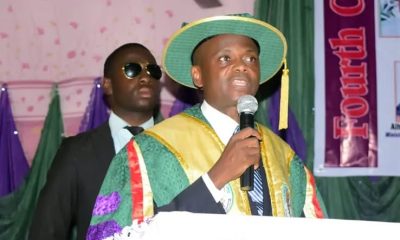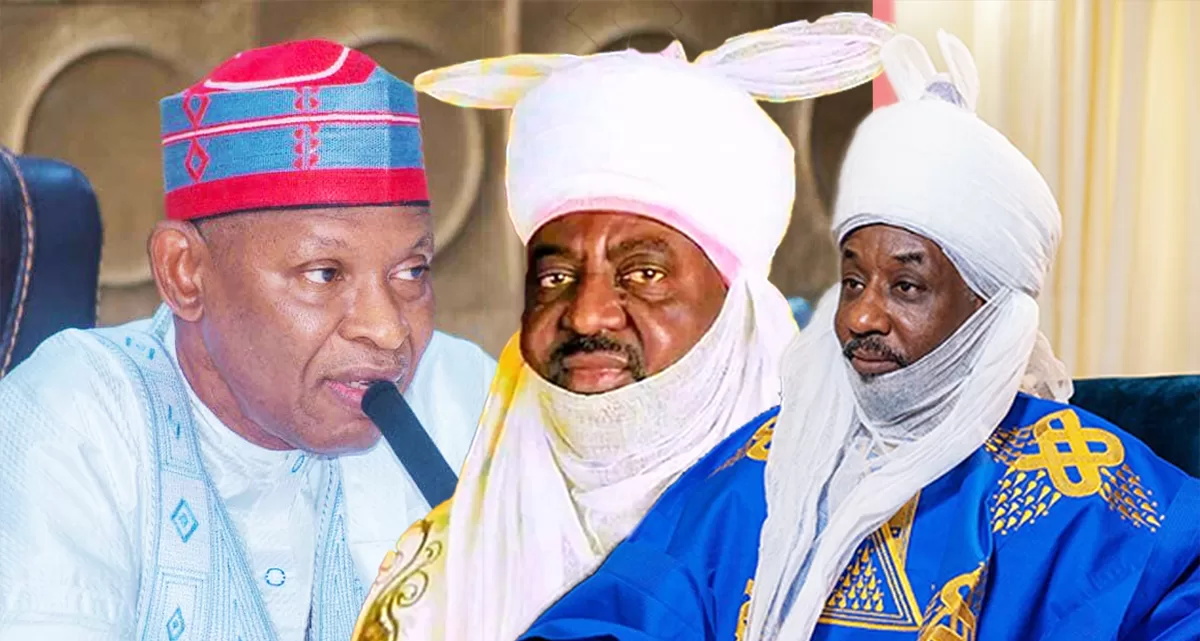The historic Kano Emir’s Palace at Kofar Kudu is under heavy security as armed policemen and operatives of the State Security Service (SSS) restrict movement into and out of the premises.
The heightened security is linked to Emir Muhammadu Sanusi II’s plans to install Munir Sanusi as the new Wamban Kano and district head of Bichi, a move that has intensified political and traditional tensions in the state.
The deployment, which includes armed operatives stationed at key access points, has raised concerns among residents and palace officials.
The Emir’s planned visit to accompany Munir Sanusi to his official district posting in Bichi has reportedly triggered the unprecedented security measures.
Meanwhile, the Bichi Emir’s Palace is also heavily guarded by armed police units, signaling the gravity of the ongoing tussle over the district’s status and leadership.
This development follows significant political maneuvering surrounding the Kano Emirate Council.
Governor Abba Kabir Yusuf, invoking powers under the recently amended Kano Emirate Council Law, invalidated the appointments of five first-class emirs, effectively restructuring the state’s traditional leadership.
Among the affected emirs was Nasiru Ado Bayero, previously presiding over the Bichi Emirate, which has since been downgraded to a district.
READ ALSO: Emir of Kano blames Nigerian politicians for decline in societal values
However, the move has not gone uncontested.
Two weeks ago, All Progressives Congress (APC) National Chairman and former Kano governor, Dr. Umar Abdullahi Ganduje, reaffirmed the legitimacy of the Bichi Emirate and its leadership under Nasiru Ado Bayero during a visit to Bichi.
The reclassification of Bichi has drawn mixed reactions, with some viewing it as a political vendetta while others see it as a step towards streamlining traditional governance structures in Kano.
Dr. Ibrahim Musa, a political analyst specializing in northern Nigeria’s traditional systems, described the situation as a test of Kano’s political and cultural resilience.
“The reorganization of Kano’s emirate system by Governor Yusuf has created a tense power struggle, pitting traditional rulers against political authority. The deployment of security forces highlights the sensitivity of this issue,” he said.
A legal expert, Barrister Fatima Gwarzo, also weighed in, noting the legal implications of the governor’s actions.
“The new Kano Emirate Council Law has granted the governor significant power, but it remains to be seen whether the judiciary will uphold these actions if challenged,” she remarked.
Residents of Bichi and Kano are closely watching the unfolding drama, with many expressing unease over the increasing militarization of what is traditionally a cultural and ceremonial process.
“This level of security for a district head’s installation is unprecedented. It reflects the deep divisions in Kano’s political and traditional leadership,” said Aminu Sani, a Kano-based journalist.
The situation in Kano underscores the complexities of managing Nigeria’s intricate balance between traditional institutions and modern political structures.
With Governor Yusuf’s administration pushing reforms, traditional rulers and their supporters are navigating an increasingly volatile landscape.

 Latest3 days ago
Latest3 days ago
 Trends4 days ago
Trends4 days ago
 Energy1 week ago
Energy1 week ago
 Education1 week ago
Education1 week ago
 Business6 days ago
Business6 days ago
 Football6 days ago
Football6 days ago
 Featured6 days ago
Featured6 days ago
 Featured1 week ago
Featured1 week ago

